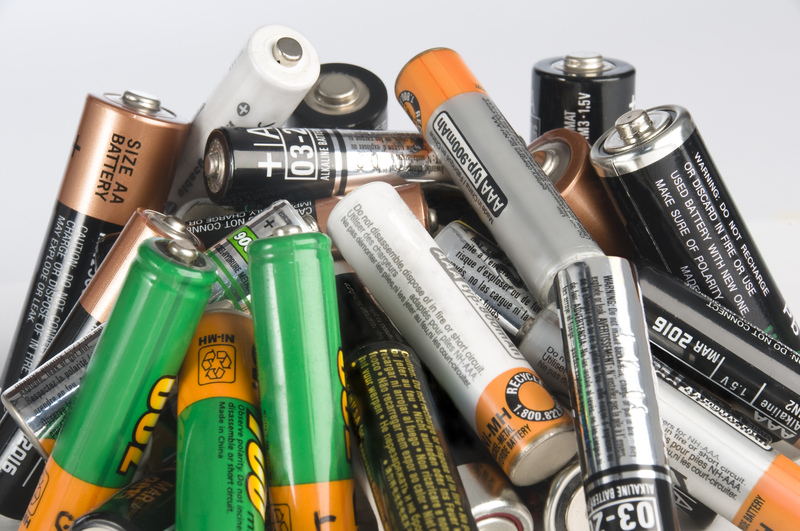Eco-Vision: Transform Your Home into a Green Sanctuary
In today's world, the concept of sustainable living has taken center stage. With increasing environmental awareness, more homeowners are seeking ways to transform their living spaces into eco-friendly havens. This pursuit of a green sanctuary not only benefits the planet but also enhances the quality of life within your home. In this comprehensive guide, we will explore effective strategies to achieve this vision.
Understanding the Eco-Vision
The term eco-vision refers to a holistic approach to harmonizing your living space with nature. This involves minimizing your carbon footprint, reducing energy consumption, and integrating sustainable materials and practices into daily life. By doing so, you can create a home that is both environmentally friendly and economically efficient.
Benefits of a Green Sanctuary
- Environmental Impact: Reducing waste, conserving resources, and using sustainable materials helps lessen your impact on the environment.
- Cost Savings: Energy-efficient appliances and renewable energy sources can significantly lower utility bills.
- Health and Well-being: Improved air quality, natural lighting, and eco-friendly products contribute to better physical and mental health.
- Enhanced Property Value: Eco-friendly homes are becoming more attractive to buyers, potentially increasing property value.

Strategies for Creating a Green Home
1. Energy Efficiency
Improving energy efficiency is a cornerstone of any eco-vision for your home. Consider the following measures:
- Insulation: Proper insulation can reduce heating and cooling needs by 30%, according to the Environmental Protection Agency.
- LED Lighting: Switching to LED bulbs can save up to 90% of the energy used by traditional incandescent bulbs.
- Energy-Efficient Appliances: Invest in appliances with the Energy Star label, which are designed to consume less energy without compromising performance.
2. Harness Renewable Energy
Transitioning to renewable energy sources is a powerful step toward sustainability. Options include:
- Solar Panels: These can be installed on rooftops to harness solar energy, providing a renewable electricity source.
- Wind Turbines: Suitable for more spacious properties, small turbines can generate electricity from wind.
- Geothermal Systems: These systems use the constant temperature of the ground to heat and cool homes.
3. Water Conservation
Reducing water consumption is crucial for transforming your home into a green sanctuary. Implement these water-saving strategies:
- Low-Flow Fixtures: Install water-saving showerheads and faucets to reduce water usage.
- Rainwater Harvesting: Collect rainwater for irrigation and other non-potable uses.
- Smart Irrigation: Use technology to optimize watering schedules and reduce water waste.
Embrace Eco-Friendly Materials
1. Sustainable Building Materials
When renovating or building, choose materials that have a minimal environmental impact. Options include:
- Bamboo Flooring: A fast-growing and renewable resource, bamboo is an excellent alternative to hardwood.
- Recycled Steel: Utilizing recycled materials reduces the need for newly sourced resources.
- Low-VOC Paints: These paints release fewer volatile organic compounds, improving indoor air quality.
2. Eco-Friendly Furniture
Your choice in furniture can further reflect your commitment to sustainability:
- Reclaimed Wood: Furniture made from reclaimed wood eliminates the need for logging and adds a rustic charm.
- Natural Fibers: Choose textiles made from organic cotton, hemp, or linen, which are sustainable and durable.
- Second-Hand Items: Upcycling and purchasing pre-owned furniture reduces waste and often supports local businesses.
Indoor Plant Life: Bringing Nature Inside
Introducing plants into your home is a natural way to purify the air and enhance the aesthetic appeal of your living spaces. Consider these popular indoor plants:
- Spider Plant: Effective at removing common toxins, crucial for air purification.
- Peace Lily: Known for its ability to filter out harmful pollutants.
- Snake Plant: Low maintenance, this plant is excellent for increasing oxygen levels indoors.

Mental and Physical Well-being
Creating a green sanctuary is not only about environmental impact but also about fostering a space that nurtures the body and mind:
- Natural Light: Maximize natural lighting to reduce reliance on artificial lights and improve mood.
- Outdoor Spaces: Designing gardens or rooftop green spaces can provide a tranquil escape from daily stress.
- Mindful Living: Incorporate elements of mindfulness through sustainable practices and design to enhance mental clarity.
Taking Action Towards an Eco-Vision
1. Assess Your Current Impact
Begin by evaluating your home's current environmental footprint. Identify areas with the greatest potential for improvement.
2. Set Realistic Goals
Establish achievable targets for energy savings, resource conservation, and sustainable living improvements.
3. Educate and Involve Your Household
Foster a collective commitment to sustainability by educating all members of the household on the importance and benefits of creating a green sanctuary.
4. Seek Professional Guidance
If necessary, consult with experts who specialize in sustainable home design and renewable energy systems to guide your transformation efforts effectively.
In conclusion, embracing an eco-vision for your home involves implementing energy-efficient practices, utilizing renewable resources, choosing sustainable materials, and fostering a supportive environment for both mental and physical well-being. By making informed decisions and taking purposeful action, you can transform your home into an environmentally conscious sanctuary--one that reflects your commitment to a sustainable future.